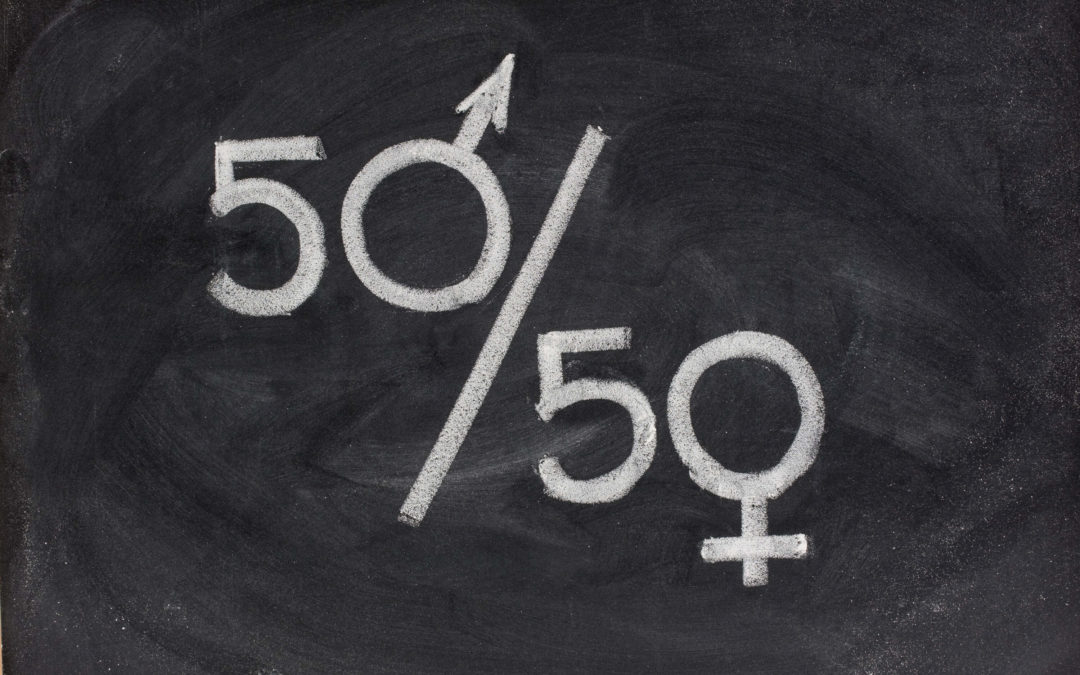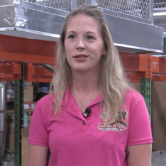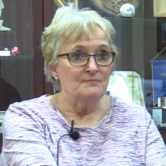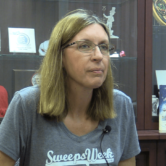
On Women’s Equality Day, The Blue Collar World Is Looking Good
From the outside looking in, it’s easy to make generalizations and assumptions about what it’s like to be a woman in a fairly male-dominated industry. But in honor of Women’s Equality Day, we thought we’d ask women in some of our favorite blue collar industries what it’s really like.
Their answers and experiences might surprise you…
- Stacey Files – CSIA Certified Sweep with Ashbusters Chimney Service
- Renee Brigman – Blue Sky Chimney Sweeps
- Diane Pilger – Co-owner of Chief Chimney Services, CSIA Certified Chimney Sweep, Past President of NCSG
- Deborah Catura – Co-owner of Jack Pixley Sweeps, CSIA Certified Chimney Sweep
- Ingrid Prior – Adirondack Chimney Company
- Linda Roydhouse – Co-owner of Clean Sweep of Anne Arundel County
- Debbie Wiedwald – Owner of Blackburn Chimney Sweeps
Was there ever a time when you felt intimidated because you were a “woman in a man’s world” or when you felt you really had to prove yourself more than a man would have had to in that situation?
Renee Brigman and Ingrid Prior both shared examples of times they were discriminated against or had to work extra hard to prove themselves when they worked in the white collar business world…
“Going into banking, which is a very male-oriented [industry], as an assistant manager? You know, there were some great guys, but then there were the ones, you know, that just would want me to go off and get them a cup of coffee or something. And back then, we’re talking late 60s early 70s, it was like, it was very hard, you know, to say ‘No’,” Ingrid recalls.
During her time in the white collar world, Renee was denied a promotion because of her gender. But in her case, it wasn’t that the man putting limits on her didn’t respect her because she was a woman…
She explains that her superior was a sweet man and a true gentleman, but because of that, he attempted to protect her from the verbal abuse she would experience if she was given the county assessor position she wanted.
She says, “He in his heart of hearts did not think women should be exposed to that. And so he would not consider me for that job…It’s just his way of thinking did not allow me to go anywhere.”
You don’t need to watch Mad Men’ to know that gender discrimination in the white collar world is, or at least was, a thing. But is the same true for the blue collar world?
Ingrid says of going from the corporate world to the chimney sweeping world, “It was like night and day.”
Renee adds, “Women in this industry…they’re not looked at differently. I feel a higher level of respect…”
The two of them partially attributed the difference to the type of men in each industry.
“There’s nothing phony [in the chimney sweeping industry],” Ingrid says. “In the banking industry, there may be some characters that…you’d have to work with where, you know, it was just a facade. And, you know, you just got that vibe that, ‘Okay, I gotta be careful with you because…you’re not real, you’re not being truthful with me’…there’s no trust…”
She adds, “The guys [in the chimney industry] did not want to go into that corporate mode…so their mindset was entirely different.”
Renee agreed saying, “They didn’t like to be told what to do, ordered around, or dominated, so they tended not to do that to ‘their women.’ Everybody was equal.”
She went on to say, “A lot of the men that we worked with were from the 60s and 70s generation, hippie-type people. Women tended to just hold their own more, [there was] more equality, [they were] more looked at as individuals and not as ‘women’.”
Ingrid echoes this equal playing ground, saying, “I didn’t have to prove myself or my abilities.”
Judy shares similar sentiments about being a woman in a blue collar industry, but partially attributes the support and equal treatment she’s received to her attitude.
“I never went in with a chip on my shoulder as I see so many women do nowadays. Feeling like they have to be on the defensive out of the gate. In reality, I went in meek, needing help, and it was given to me with open arms…Yes, it is a fairly male-dominated industry, but I never for one minute felt less because I was a woman. In fact, the very opposite! I came into the propane business really knowing very little and the industry embraced me immediately.”
Stacey, a female chimney sweep, echoes the importance of attitude.
“It’s never been an intimidation factor, but a — for myself internally — a prove yourself worthy in this industry, because I am a female in a male-dominant work environment. I just wanted to show them, just because I’m a girl, you don’t have to carry my buckets for me or move my ladder for me. Teach me how you do it, because I want to learn. Because I want to be able to do my job fully, without depending on other people. I’m here to work equally to anybody else that’s expected to do the jobs that I do.”
Judy adds, “I realize I work in a small town and a relatively small industry, but I have a very different opinion of women in a man’s world. I really think we have moved beyond that stigma, as well as the racial bias.”
Sounds like women in the chimney sweeping and propane industries are judged on who they are and what they’re capable of, not what gender they are — which is something worth celebrating.
But we wondered, do customers and their preconceived ideas of man’s work vs. woman’s work lead to discrimination or unequal treatment for females in these industries?
Debbie Wiedwald says, “There were times when…I had to prove myself with customers.”
She goes on to say that sometimes her customers didn’t trust her knowledge or the information she was sharing with them because she was a woman doing work that they traditionally saw as “man’s work.”
Renee echoed that, saying, “The discriminatory conduct that we endure comes from the customers, not from within the industry.”.
In Diane Pilger’s experience, the discrimination from customers was rare, and she let it roll off her back.
“I called it in the beginning the ‘little lady’ syndrome, where when I would pull up, especially if there was a male and it was me and my daughter, they would wanna carry the bucket or help with the vacuum or help with the ladder. And we had systems in place to handle all that, so we would kindly say ‘No, no, we can deal with it’.”
Stacey shares a similar experience,
“I’ve approached customers houses and introduced myself, and they’ll be looking behind me going, ‘You have another helper with you right?’
“‘Oh no, it’s just me.’
“And they’re like, ‘But the lady on the phone said you guys were gonna get up on the roof and check everything out.’…
“‘Yes ma’am, I’ve got ladders.’
“‘You’re gonna move those ladders all by yourself?’
“‘Yes ma’am, I do it every day.’
“And so you know, they watch me while I’m doing my job, and by the end of the day or the service…every customer’s very impressed that I’m able to do my job fully…I’m very thorough and detailed and they take that with very high respect.”
Diane had a somewhat similar experience, but the customer didn’t allow her the chance to prove her abilities.
“…only once, a man opened the door and as we were getting ready to go in he goes, ‘You do know you have to go on the roof?’
“And my daughter was probably one of the best ladder climbers — she was like cats on a hot tin roof. And we said, ‘Yes, we know we have to go on the roof.’
“And he looked at us and said, ‘Well, I decline your services.’
“So, we got back in the truck, and I looked at my daughter and she was kinda upset, and I said, ‘This has never happened before and it’s bound to happen. But we’re just gonna move on.’
“That was the only time since I’ve been in the business — since 1996 — that I actually had somebody who you could tell rejected services because we were females.”
She went on to say, “A lot of times you just gotta let it roll off your back and not take it [personally]. It’s just the way it is. Things are said and, you know, sometimes they’re not meant as personal.”
Are there any ways in which you think being a female in this industry is actually an advantage? What traits and skills do you think women have that make them uniquely equipped to succeed in the blue collar world?
We weren’t just curious about disadvantages and discrimination. We also wanted to know if there were any advantages to being a woman in a traditionally male-dominated industry or any innately female traits that set women up to succeed.
Stacey shares, “I would have to say, definitely, when it comes to interacting with the customer, more so for the female side of my customers…A lot of times I deal with a lot of women. And when I come up to the door, they’re expecting this big burly man to come do this job, and a woman shows up. It immediately puts them at a sense of relaxation and comfort, because they don’t have to worry about a ‘strange man’…as they refer to them, in their home…So I think that it allows a little different comfort level there that maybe a male technician wouldn’t get with a female customer.”
Debbie agrees, adding, “I can relate more to our customers because a lot of times, I’m talking to another female homeowner. I’m able to put the repairs more in layman’s terms, as opposed to as technical as perhaps our guys would.”
Diane shares similar feelings, saying, “We have a different perspective than men have when it comes to working with men and women who run a household. I think it puts a sense of relief that somebody’s there, especially for women, that might understand their position.”
Linda says, “Like our male counterparts, we bring leadership, intuition, and our business sense.” She goes on to say, “We bring more empathy and a different perspective that benefits the [female] consumer.”
She adds, “We also have that ‘special skill’ to get information and understand other points of view…Women are more patient, good listeners, and much more intuitive. [We] pay attention to the details and are more personable.”
Ingrid and Renee have similar thoughts about women’s qualifications and what women bring to the blue collar world.
Renee says, “I think women can actually be better salespeople a lot of times, because we’re more intuitive. We actually can read body language better than…most men can. And so we know, kind of intuitively, whether somebody’s getting what we say….You can see their eyes glaze over. They’re nodding their head and they don’t wanna look stupid, so they’re acting like they understand, but there’s an expression on their face that you know they’re not getting it. And the technician can’t always tell that because he’s busy thinking about giving the information…”
She goes on to talk about the conversational and communication skills of women and how those skills help build trust with customers — pointing out that their female CSRs are more conversationally savvy and often pre-sell for the techs.
She says, “Most of the time, they [the customer] will buy from you because they appreciate that you don’t make them feel stupid. You make illustrations with things that they understand. You don’t talk too technical.”
Diane agrees that women’s intuition and communication skills are beneficial in the chimney sweeping industry, saying, “I think females have a better intuition when somebody’s upset or they feel uncomfortable…And probably men do have this knack too, but you can tell when you’re explaining something very technical, especially to women, sometimes to men, and they get a deer in the headlights look, like you’re talking, but they don’t hear what you’re saying ‘cause they don’t understand. So I try to do it in plain English, especially for women….something they’ll understand.”
Debbie adds that the conversational skills of women actually help with problem-solving as well and getting past the surface with customers.
She says, “You know, everybody says women talk more and have better conversations. Perhaps women could help more with trying to get to the bottom of what the concerns are, oftentimes, with the homeowners…”
Judy points out that “Women tend to be very detail oriented” and that “that makes them very desirable in any capacity of the industry.”
Similarly, Stacey shares that, “Women were born to be multi-tankers and most women seem to be a lot more organized, just for the simple fact that we are made to be mothers, and a lot of times, that takes on a bigger responsibility than a man’s role in parenting. I think that plays over and plays a big part in the actual work environment world. And for myself, it has actually helped me be a better technician, having those skills.”
But what each woman we interviewed also emphasized is the importance of having both women and men in the company.
Deborah says that, “having both male and female points of view balance[s] out a company.”
Renee agrees, saying that when you’ve got a team of one man and one woman, “you’ve got a superior team than you would have if you have two men, or even two women, because you’ve got both perspectives.”
Like yin and yang, women and men bring different elements together to create a better, more balanced business that provides better service to the customers it serves. Now, there’s a good reason to consider the diversity of your business!
How do you connect with other women in the industry? Do you feel there’s a tighter sense of community among the women in your industry because you’re in the minority?
Diane says, “I connect with a lot of women in the industry because it’s something we have in common…I wouldn’t say it’s like a clique or anything. It’s kind of an understanding of where we’ve been and where we’re going…”
Judy actually avoids women’s organizations within the propane industry, and her reasoning might surprise you: “I believe women vs. men is what causes the divide and I don’t really want to go in that direction,” she says.
The belief that focusing on our differences or segregating ourselves can actually be harmful is a valid one. So, we do have to be careful not to work against ourselves as we connect and seek support from those we share commonalities with.
Stacey says, “I have not gotten the opportunity to meet any other female sweeps in this industry at this point. I think it would be really awesome just to talk to them and see their outlook on it, see how they got into it, and see where their heart is with it. As far as interacting with females that work for the company, they’re wonderful. Everybody, male and female, they’re open arms, fully welcoming, and I really appreciate all the support I get from everybody all around.”
Linda agrees that it’s not just the women who are welcoming and supportive, saying, “The chimney industry is very small compared to other industries,” and that, “no matter your gender, you are welcomed [with] open arms.”
What would you say to women coming into the workforce who may not have considered blue collar business as a career goal or even an option?
Although there are clearly women in the chimney sweeping industry and propane industry and there have been for decades, we think there’s room for more. So, we were curious, what would women in these industries say to other women who might not have considered the blue collar world a viable option because of their gender?
Linda says, “Welcome! Women over the years have been entering the blue collar business [world] and seem to fit in fine. Women bring a uniqueness and different problem solving skills to any workforce they enter.”
Here’s what Debbie had to say, “I’d say go for it…you know, the skills that are needed, it doesn’t matter if somebody is male or female. I mean, certainly females can be great business owners in the blue collar field, good technicians…there’s really no reason to be limited in thinking that there’s closed doors. Just keep going at it.”
Renee’s advice? “I find that there are no walls in this industry. You can actually do whatever you want to do….There is always something new and exciting to stimulate your mind…”
Ingrid adds that no matter what industry you’re in, if you see something you want to do, “Go for it…don’t give yourself those boundaries!”
Diane shares that, “If you want to come into this industry, you can’t be intimidated by it. You just come into it with your eyes wide open and thick skin.” She adds “It’s not as dirty work as you think it is, and it can be very rewarding at times.”
Deborah echoed that advice, saying, “Besides learning how to work as a team for a common goal…you better have thick skin.”
Stacey adds, “I believe that everybody has the ability to do anything they put their mind to. And I don’t think that anybody should limit themselves just because of any demographic, whether it be a male or a female demographic, or a race demographic…everybody should just go for whatever their heart desires…Because smarts aren’t limited by whether you’re a male or a female…If you’re interested, try it out. If you don’t know where you’re going, try a new thing. I’ve noticed throughout my life that the biggest opportunities in my life have come when I’ve just went with the flow of life and taken things as they come, and I’ve done the best with what has been provided into my life. Just again, don’t limit yourself.”
Judy finishes us off with some solid advice, “Don’t ever be the last one into work or the first one to leave. If you want to be recognized for your merit and not just [for] being a woman, this will get the job done. Work hard and be proud of who you are and who you work for. This will get you ahead faster than anything else.”
She adds, “Always take the high road, the view is much better, and everyone can see your work and reward you for it!”
Finally, what do you think we can do to lessen the gender gap in the blue collar world?
The women we interviewed are amazing examples of females not just surviving, but thriving, in blue collar industries. But how do we get more females through the door so we can have those better, more balanced companies we spoke of?
Deborah says, “Marketing ideas have to continue to change with no stereotypes; and parents and role models have to pay attention to treating children the same.”
Renee says it’s largely up to women: “I think a lot of women compartmentalize themselves…it requires somebody who can think outside the box, and I think a lot of people stay in the box.”
Linda adds that we should “continue to encourage women to seek roles in the blue collar field.” And that “business owners can expand their applicant pool” and “have standards in place so that all employees have the same opportunities for growth and advancement.”
To business owners, Stacey says, “I would say maybe reach out to middle schools and high schools and make it a point in their presentation of their company that this isn’t just limited to one gender…Offer shadowing to different groups…maybe reach out to Girl Scouts or anything that might be a bigger female-oriented community. Reach out to them and open those industries up. Bring it to their attention, because a lot of women just may not know. They may not ever even think about it. So just put it out there and stress that it’s not limited.”
Parents, she says, need to lead by example. “Being a mother with children, they look at me as an idol, and they see what I do. So, it’s just continuously instilling in them to reach for the stars.”
Judy’s excited about the possibility of having more women in the propane industry as well, and hopes to hire a female tech or driver. So if you’re in Proctor, VT, hop to it!
Big thank you to all of the women who shared their insights and experiences. What an amazing group of women the chimney sweeping and propane industries have — and lucky us, we get to work with them day in and day out!











